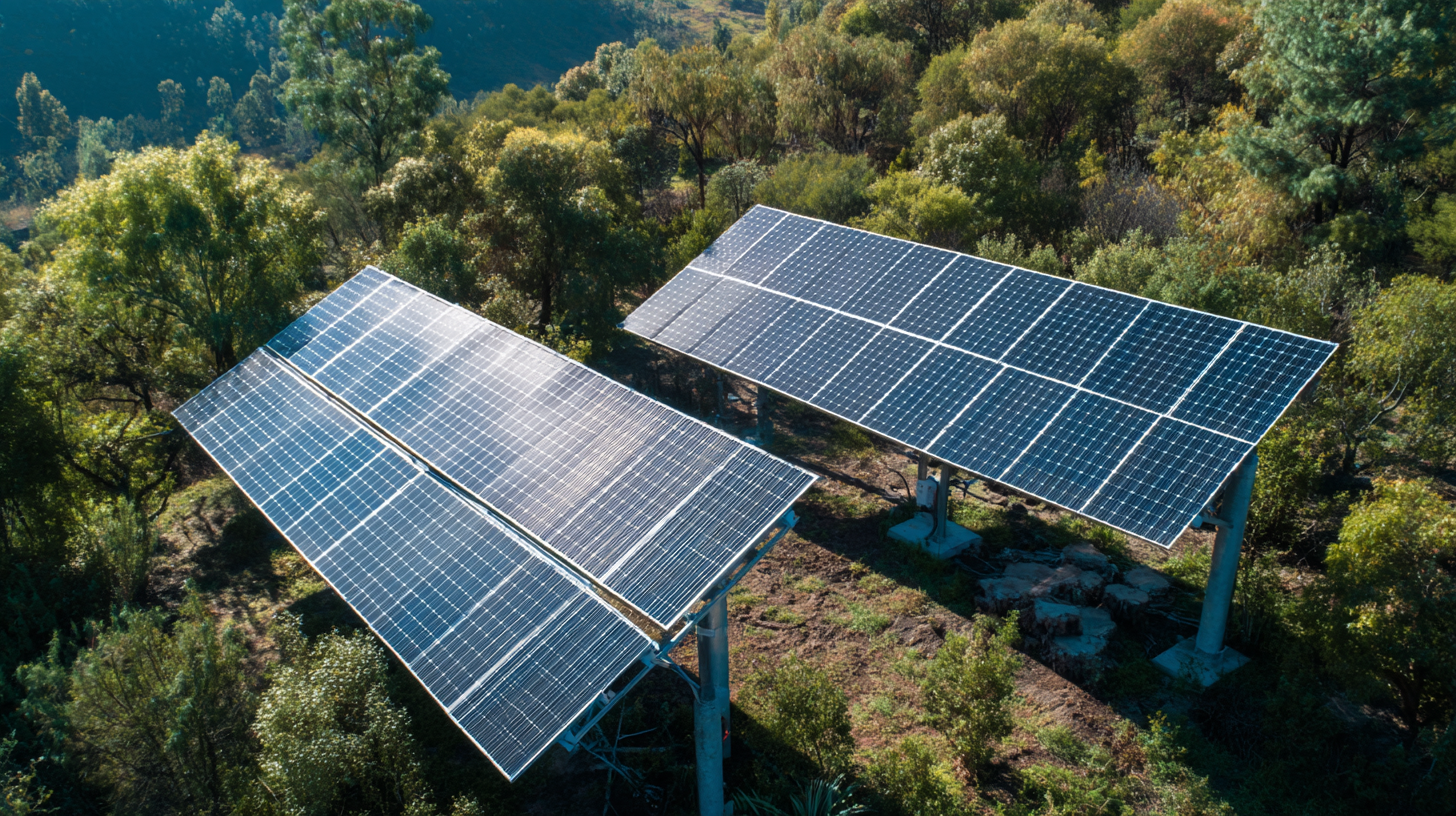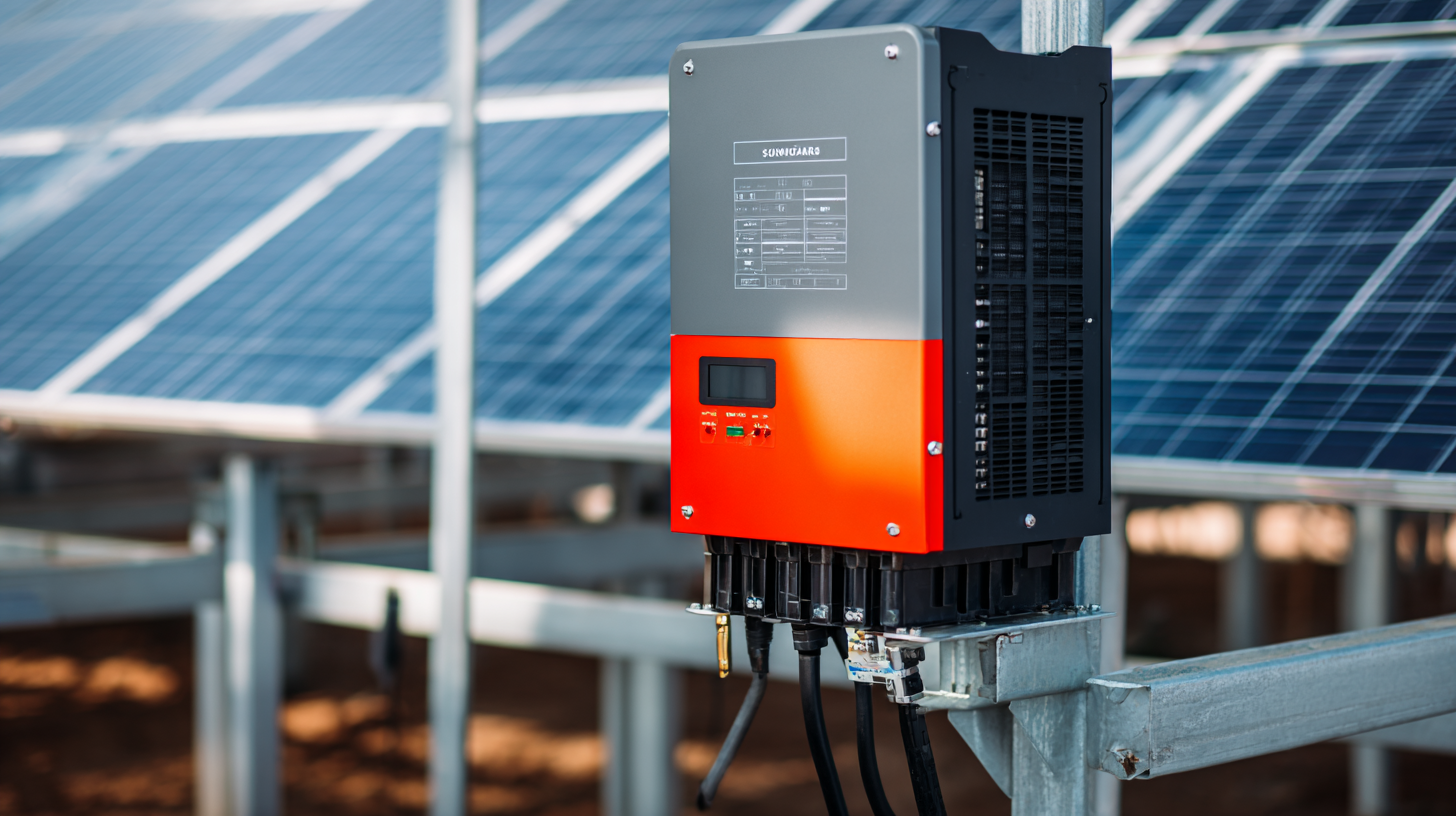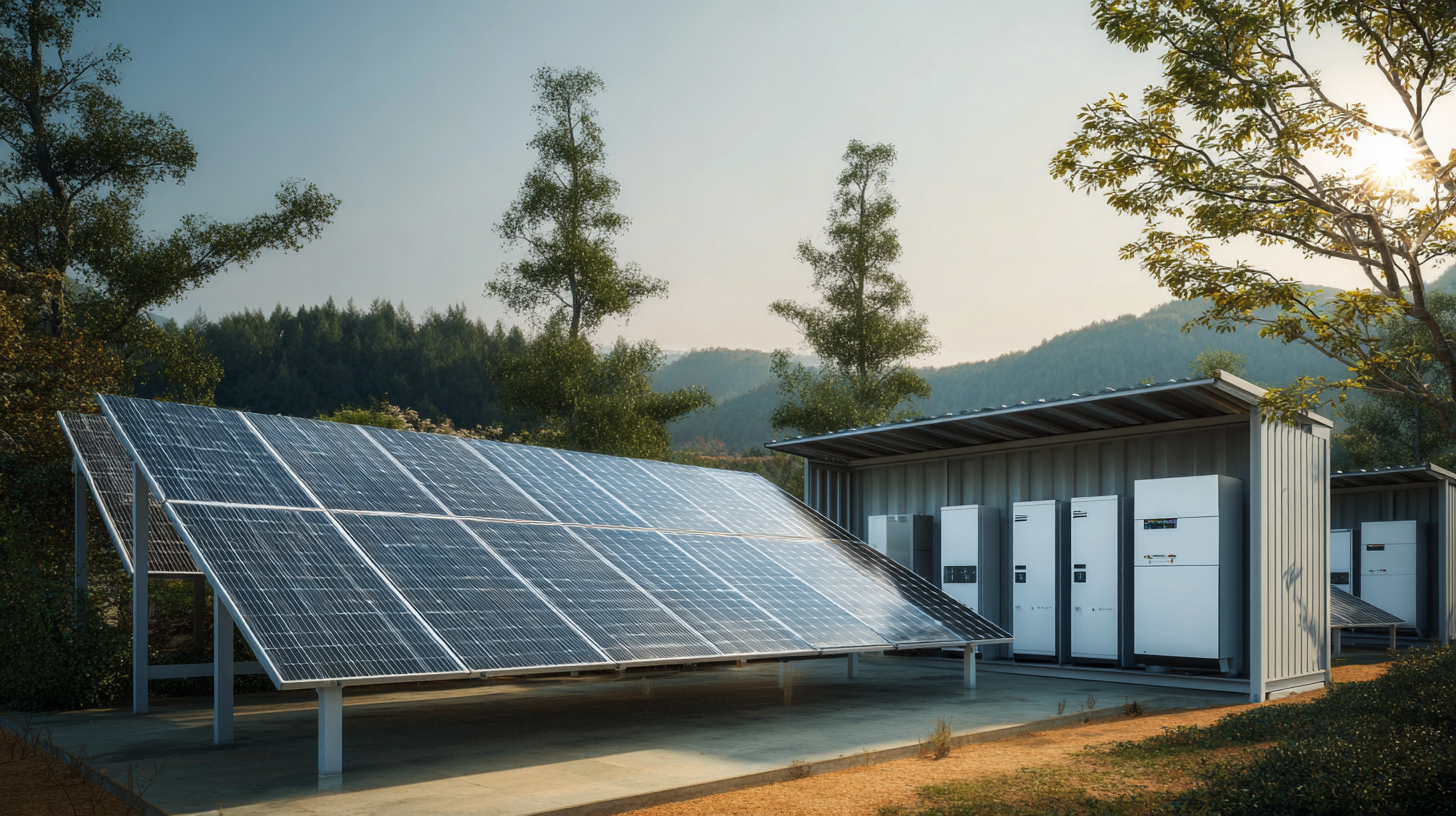ALL PRODUCTS
- Solar Panel
- Hybrid Inverter
- Lithium Battery
GSB SOLAR LITHIUM BATTERIES
- Gel Battery
- Solar Street Lights
- Pump Inverter
As businesses increasingly strive for sustainable energy solutions, the adoption of hybrid solar inverters has become a focal point in the renewable energy landscape. According to a report by MarketsandMarkets, the global hybrid inverter market is projected to grow at a significant CAGR of 14.5% between 2021 and 2026, reflecting heightened demand for efficient energy management systems. Hybrid solar inverters, which combine solar energy with other power sources such as batteries or the grid, offer businesses flexibility and reliability in energy supply.

This technology not only optimizes energy consumption but also reduces operational costs, thereby enhancing overall energy resilience. In this ultimate guide, we will explore key considerations when selecting the perfect hybrid solar inverter tailored to your business needs, ensuring an informed and strategic approach to your transition to renewable energy.
When selecting a hybrid solar inverter for your business, several key factors should guide your decision. First, assess your energy consumption and generation needs. Calculate your daily energy usage, and consider how much power you wish to produce from solar. This assessment will help you choose an inverter that can effectively manage your energy between solar generation and the grid, leading to optimized efficiency and reduced costs.
Another critical factor is the inverter's compatibility with your existing solar system and batteries. Ensure that the inverter supports the voltage and capacity of your current solar panels and battery storage. Look for features like grid-tie and off-grid capabilities, as they offer flexibility for different scenarios. Additionally, consider the inverter's efficiency rating and warranty terms, as these aspects will impact long-term performance and reliability. By focusing on these factors, you can select a hybrid solar inverter that aligns perfectly with your business needs and enhances your energy management strategy.
| Feature | Description | Importance |
|---|---|---|
| Power Rating | Indicates the maximum power output. | Critical for meeting energy demands. |
| Efficiency | The ratio of output power to input power. | Higher efficiency reduces energy loss. |
| Battery Compatibility | Ability to work with different battery types. | Essential for flexible energy storage solutions. |
| Warranty | Period of manufacturer warranty on the inverter. | A longer warranty indicates reliability. |
| Monitoring Capabilities | Features for real-time monitoring of energy production. | Important for optimizing energy usage. |
| Installation Requirements | Details on ease of installation and space needed. | Influences overall cost and setup time. |
| Grid Connection Type | Specification of how the inverter connects to the grid. | Determines operational functionality in grid outages. |
When it comes to selecting a hybrid solar inverter for your business, understanding the different types available is crucial to meeting your specific energy needs. Hybrid inverters can manage both solar power and battery storage, providing flexibility and reliability. The key types to consider include grid-tied, off-grid, and battery backup inverters.

Grid-tied inverters are ideal for businesses looking to reduce energy costs while remaining connected to the grid, enabling them to sell excess energy back. In contrast, off-grid inverters suit business operations in remote areas, where grid connectivity is limited or non-existent.
Battery backup inverters are another option that ensures continuity during power outages, making them essential for businesses relying on constant operation. These versatile inverters not only harness solar energy but also allow for charging from the grid or a generator when necessary.
When evaluating your options, consider factors like energy consumption patterns, potential growth, and your budget. By thoroughly comparing these inverter types, you can select the one that aligns perfectly with your business requirements, ultimately leading to a more efficient and sustainable energy solution.
When selecting a hybrid solar inverter for your business, understanding efficiency ratings is essential for ensuring optimal performance. Efficiency ratings, typically expressed as a percentage, reflect how well an inverter converts the DC electricity generated by solar panels into usable AC electricity. Higher efficiency ratings mean more of the generated solar energy is utilized, translating to cost savings and improved energy reliability. When evaluating inverters, look for those with efficiency ratings above 95%, as they tend to deliver better performance in various conditions.
Another crucial factor to consider is the inverter’s Maximum Power Point Tracking (MPPT) capability. This technology allows the inverter to adjust its operating point to match the optimal output from solar panels, maximizing energy capture throughout the day. In addition to MPPT, the inverter’s ability to perform efficiently under different temperatures and shading conditions can significantly impact overall system performance. By prioritizing these efficiency metrics, businesses can not only enhance their energy independence but also contribute to sustainable practices, making an informed choice in hybrid solar inverters a valuable investment for the future.
When choosing a hybrid solar inverter for your business, it’s crucial to focus on essential features that ensure efficiency, reliability, and long-term savings. One of the primary aspects to consider is the inverter's maximum power point tracking (MPPT) capabilities. Advanced MPPT technologies, such as hybrid predictive control and adaptive perturb and observe (P&O), can significantly enhance energy harvesting from your solar panels, even under variable conditions. This leads to better performance and higher energy yields, which are critical for optimizing your investment.

Another vital feature is the inverter's ability to integrate seamlessly with battery storage systems. As the demand for uninterrupted power grows, a hybrid inverter that supports intelligent integration can provide a reliable backup during outages. Furthermore, it’s essential to assess the inverter’s efficiency ratings and power quality management. Higher efficiency ratings translate to reduced energy losses, while robust power quality features can prevent disruptions and ensure a stable output, ultimately boosting your business's productivity. Investing in a high-quality hybrid solar inverter with these critical features will enable your business to thrive in an increasingly energy-conscious market.
When selecting a hybrid solar inverter for your business, budgeting plays a crucial role in ensuring you make a wise investment. With electricity costs on an upward trajectory, leveraging solar technology can not only reduce operational costs but also improve your bottom line. It's essential to assess your energy requirements and evaluate various models to find an inverter that meets your needs without stretching your budget. According to recent industry surveys, the best solar inverters in the market boast efficiencies that can exceed 98%, which can lead to significant savings over time when paired with high-quality solar panels.
Additionally, when shopping for a hybrid solar inverter, look for options that offer integrated energy storage solutions. As energy prices rise, batteries are becoming an attractive addition for businesses aiming to maximize their solar investment. Industry reports indicate that businesses that combine solar panels with efficient inverters and storage can achieve up to 30% savings on their energy costs. By making informed choices and leveraging the latest technology, you can secure the best hybrid solar inverter that fits both your operational needs and financial constraints.






